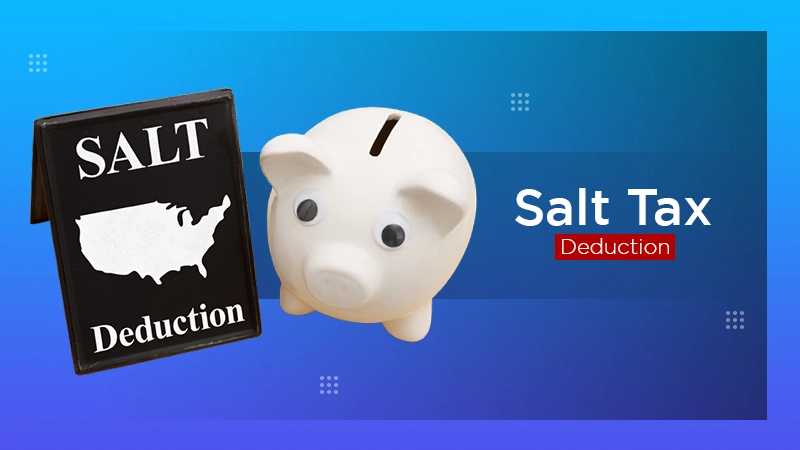Yes. Unless you are a non-resident for tax purposes, U.S. citizens living abroad must file annual federal returns as well as report worldwide income, independent of their taxes in Australia.
KEY TAKEAWAYS
- U.S. expats in Australia still must file annual U.S. taxes.
- Missing FBAR or FATCA filings can lead to serious penalties.
- Foreign Tax Credit often saves more money than the income exclusion.
- Streamlined Amnesty helps catch up on unfiled taxes without penalties.
- Staying organized year-round makes dual-country filing far less stressful.
An IRS report from 2023 recently showed that there are over 9 million U.S. citizen living abroad (and thousands more who travel abroad for work – think oil and gas industry – and other short-term work arrangements!) Most would be unaware that they have ongoing U.S. international tax compliance obligations.
As a licensed American accountant who has been living in Australia for 15 years, I have dealt with international cross-border tax systems firsthand. Managing taxes across two countries involves tangible differences in deadlines, income, and the varied applicable rules associated with reporting in two countries that expatriates often struggle with.
In this article, I will provide my own personal approach to filing U.S. taxes from Australia. What common mistakes to avoid, and actionable tips you can take to remain compliant and engaged, and not stressed throughout the course of the year.
Quick Summary – Key Talking Points:
- U.S. citizens are still required to file U.S. taxes, even when living in Australia
- Differences between IRS and ATO (Australian Taxation Office) rules cause tricky filing circumstances
- Common expat errors are missing FBAR, FATCA, and foreign tax credits
- Tips for handling dual income reporting and taking advantage of credits such as the Foreign Earned Income Exclusion
- How the Streamlined Tax Amnesty Program can assist with unfiled US tax returns
- Tools and filing sites that make it easy to file as an expat
- Important 2025 deadlines and what expats need to do to get a head start
- Final CPA tip: be precise, be compliant, and file early
U.S. Citizens Overseas Still Must File
Although living in Australia on a permanent basis and paying tax here, I’m still obliged to file a U.S. federal tax return annually. The U.S. is one of the rare countries worldwide that imposes taxes based on citizenship instead of residency.
Therefore, although I deal with the ATO on a daily basis, I also:
- File Form 1040
- Report worldwide income
- Disclose foreign bank accounts and superannuation
- Work out overlapping yet different tax regulations
If you’re a U.S. expat, failing to meet IRS obligations can lead to serious consequences, even when no taxes are owed.
IRS vs. ATO: Major Differences That Affect Filing
Two tax systems mean friction points. Here are some that count:
| Category | IRS (U.S.) | ATO (Australia) |
| Tax Year | Calendar Year (Jan–Dec) | Fiscal Year (Jul–Jun) |
| Superannuation | May be taxable or reportable | Tax-deferred retirement fund |
| Tax Credits | Foreign Tax Credit, FEIE, Child Tax Credit | Offsets and deductions vary |
| Filing Requirements | Citizenship-based | Residency-based |
Common Expat Blunders
- FBAR (FinCEN Form 114) forgetfulness
You must report foreign accounts if their total balances exceed USD 10,000—even for a short time. - Avoiding FATCA (Form 8938)
If foreign financial assets exceed the cutoff (beginning at $200,000 for expats), FATCA applies. - Forgetting Foreign Tax Credit
Many expats use the Foreign Earned Income Exclusion, yet overlook that Form 1116 typically offers greater benefits, especially for those with families.
- Missing Out on the Streamlined Amnesty Program
If you have unfiled U.S. tax returns, the Streamlined Filing Program enables you to catch up penalty-free.
How I Personally Organize My Filing Process
Here’s what works for me as a CPA-tested methodology:
1. Dual Income Tracking
I utilize accounting software that allows me to export income reports for the fiscal and calendar year so that I can prepare both ATO and IRS returns with precision.
2. Foreign Tax Credit First
Because my Australian tax payments are higher, using the Foreign Tax Credit (Form 1116) completely offsets my U.S. tax liability without needing income withheld.
3. FBAR and FATCA: Non-Negotiables
Annualy, I make a list of all accounts I’ve handled—even those inactive—and review balances at their peak. I utilize this to fill out the FBAR and Form 8938.
4. Exercise Caution with Streamlined Filing
I’ve assisted clients who qualified for amnesty and consistently recommend hiring an expat tax expert to ensure the non-willful certification is accurate.
Tools That Make Filing Easier
IRS Free Fillable Forms can be handy for basic tax returns, but they do not include automation or built-in assistance. They suit individuals who are comfortable with handling forms directly.
That said, for most expats living with and reporting income internationally, there is usually something more substantial needed. Expensive dedicated expat tax software, like Expat Tax Online, is built for dual-country reporting, specifically IRS and ATO obligations.
Personally, I usually download and keep all bank feeds and superannuation statements organized in my own file halfway through the year. This habit allows me to streamline the preparation process and make sure I have not missed any critical financial information at tax-filing time. Below you can see other tool that can be very useful.

2025 Expat Tax Deadlines (Mark Your Calendar)
- April 15 – U.S. tax return deadline (but interest begins here if you owe)
- June 16 – Automatic expat extension deadline
- October 15 – Extended deadline (must submit Form 4868 on or before June 16)
- April 15 & October 15 – FBAR due dates (with automatic extension)
- October 31 (Australia) – ATO tax return due date (or May 15 through a tax agent)
DO YOU KNOW?
Penalties for serious tax evaders and major delinquency can result in a revoked passport and even jail time.
Final Thoughts
Completing U.S. taxes as an expat isn’t something you want to try without fully understanding the risks. Given that both the stakes and compliance requirements are higher (especially with FATCA, FBAR, and superannuation), mistakes could lead to expensive fines and long-term problems.
To keep things straight, it’s a good practice to stay organized throughout the year. It is always good to work with a CPA or expat tax specialist who has an understanding of both the U.S. and Australian systems.





